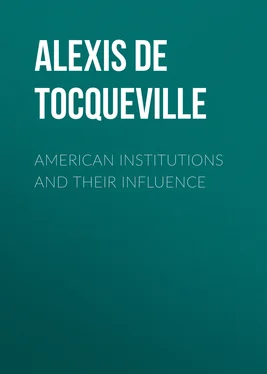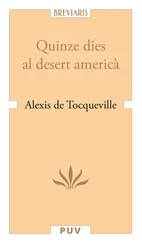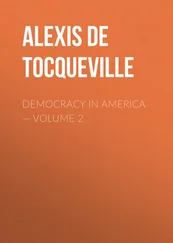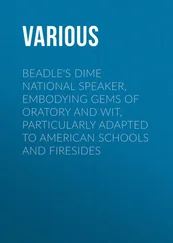Alexis de Tocqueville - American Institutions and Their Influence
Здесь есть возможность читать онлайн «Alexis de Tocqueville - American Institutions and Their Influence» — ознакомительный отрывок электронной книги совершенно бесплатно, а после прочтения отрывка купить полную версию. В некоторых случаях можно слушать аудио, скачать через торрент в формате fb2 и присутствует краткое содержание. Жанр: foreign_antique, Политика, foreign_edu, на английском языке. Описание произведения, (предисловие) а так же отзывы посетителей доступны на портале библиотеки ЛибКат.
- Название:American Institutions and Their Influence
- Автор:
- Жанр:
- Год:неизвестен
- ISBN:нет данных
- Рейтинг книги:5 / 5. Голосов: 1
-
Избранное:Добавить в избранное
- Отзывы:
-
Ваша оценка:
- 100
- 1
- 2
- 3
- 4
- 5
American Institutions and Their Influence: краткое содержание, описание и аннотация
Предлагаем к чтению аннотацию, описание, краткое содержание или предисловие (зависит от того, что написал сам автор книги «American Institutions and Their Influence»). Если вы не нашли необходимую информацию о книге — напишите в комментариях, мы постараемся отыскать её.
American Institutions and Their Influence — читать онлайн ознакомительный отрывок
Ниже представлен текст книги, разбитый по страницам. Система сохранения места последней прочитанной страницы, позволяет с удобством читать онлайн бесплатно книгу «American Institutions and Their Influence», без необходимости каждый раз заново искать на чём Вы остановились. Поставьте закладку, и сможете в любой момент перейти на страницу, на которой закончили чтение.
Интервал:
Закладка:
In New England, townships were completely and definitively constituted as early as 1650. The independence of the township was the nucleus around which the local interests, passions, rights, and duties, collected and clung. It gave scope to the activity of a real political life, most thoroughly democratic and republican. The colonies still recognised the supremacy of the mother-country; monarchy was still the law of the state; but the republic was already established in every township.
The towns named their own magistrates of every kind, rated themselves, and levied their own taxes. 45 45 Code of 1650, p 80.
In the townships of New England the law of representation was not adopted, but the affairs of the community were discussed, as at Athens, in the market-place, by a general assembly of the citizens.
In studying the laws which were promulgated at this first era of the American republics, it is impossible not to be struck by the remarkable acquaintance with the science of government, and the advanced theory of legislation, which they display. The ideas there formed of the duties of society toward its members, are evidently much loftier and more comprehensive than those of the European legislators at that time: obligations were there imposed which were elsewhere slighted. In the states of New England, from the first, the condition of the poor was provided for; 46 46 Code of 1650, p. 78.
strict measures were taken for the maintenance of roads, and surveyors were appointed to attend to them; 47 47 Code of 1750, p. 94.
registers were established in every parish, in which the results of public deliberations, and the births, deaths, and marriages of the citizens were entered; 48 48 Ibid, p. 86.
clerks were directed to keep these registers; 49 49 See Hutchinson's History, vol. i. p. 455.
officers were charged with the administration of vacant inheritances, and with the arbitration of litigated landmarks; and many others were created whose chief functions were the maintenance of public order in the community. 50 50 Ibid, p. 40.
The law enters into a thousand useful provisions for a number of social wants which are at present very inadequately felt in France.
But it is by the attention it pays to public education that the original character of American civilisation is at once placed in the clearest light. "It being," says the law, "one chief project of Satan to keep men from the knowledge of the Scripture by persuading from the use of tongues, to the end that learning may not be buried in the graves of our forefathers, in church and commonwealth, the Lord assisting our endeavors." 51 51 Code of 1650, p. 90.
Here follow clauses establishing schools in every township, and obliging the inhabitants, under pain of heavy fines, to support them. Schools of a superior kind were founded in the same manner in the more populous districts. The municipal authorities were bound to enforce the sending of children to school by their parents; they were empowered to inflict fines upon all who refused compliance; and in cases of continued resistance, society assumed the place of the parent, took possession of the child, and deprived the father of those natural rights which he used to so bad a purpose. The reader will undoubtedly have remarked the preamble of these enactments: in America, religion is the road to knowledge, and the observance of the divine laws leads men to civil freedom.
If, after having cast a rapid glance over the state of American society in 1650, we turn to the condition of Europe, and more especially to that of the continent, at the same period, we cannot fail to be struck with astonishment. On the continent of Europe, at the beginning of the seventeenth century, absolute monarchy had everywhere triumphed over the ruins of the oligarchical and feudal liberties of the middle ages. Never were the notions of right more completely confounded than in the midst of the splendor and literature of Europe; never was there less political activity among the people; never were the principles of true freedom less widely circulated, and at that very time, those principles, which were scorned or unknown by the nations of Europe, were proclaimed in the deserts of the New World, and were accepted as the future creed of a great people. The boldest theories of the human reason were put into practice by a community so humble, that not a statesman condescended to attend to it; and a legislation without precedent was produced off-hand by the imagination of the citizens. In the bosom of this obscure democracy, which had as yet brought forth neither generals, nor philosophers, nor authors, a man might stand up in the face of a free people, and pronounce amid general acclamations the following fine definition of liberty: 52 52 Mather's Magnalia Christi Americana, vol. ii., p. 13. This speech was made by Winthrop; he was accused of having committed arbitrary actions during his magistracy, but after having made the speech of which the above is a fragment, he was acquitted by acclamation, and from that time forward he was always re-elected governor of the state. See Marshall, vol. i., p. 166.
—
"Nor would I have you to mistake in the point of your own liberty. There is a liberty of corrupt nature, which is affected both by men and beasts to do what they list; and this liberty is inconsistent with authority, impatient of all restraint; by this liberty ' sumus omnes deteriores ;' it is the grand enemy of truth and peace, and all the ordinances of God are bent against it. But there is a civil, a moral, a federal liberty, which is the proper end and object of authority; it is a liberty for that only which is just and good: for this liberty you are to stand with the hazard of your very lives, and whatsoever crosses it is not authority, but a distemper thereof. This liberty is maintained in a way of subjection to authority; and the authority set over you will, in all administrations for your good, be quietly submitted unto by all but such as have a disposition to shake off the yoke and lose their true liberty, by their murmuring at the honor and power of authority."
The remarks I have made will suffice to display the character of Anglo-American civilisation in its true light. It is the result (and this should be constantly present to the mind) of two distinct elements, which in other places have been in frequent hostility, but which in America have admirably incorporated and combined with one another. I allude to the spirit of religion and the spirit of liberty.
The settlers of New England were at the same time ardent sectarians and daring innovators. Narrow as the limits of some of their religious opinions were, they were entirely free from political prejudices.
Hence arose two tendencies, distinct but not opposite, which are constantly discernible in the manners as well as in the laws of the country.
It might be imagined that men who sacrificed their friends, their family, and their native land, to a religious conviction, were absorbed in the pursuit of the intellectual advantages which they purchased at so dear a rate. The energy, however, with which they strove for the acquirements of wealth, moral enjoyment, and the comforts as well as the liberties of the world, was scarcely inferior to that with which they devoted themselves to Heaven.
Political principles, and all human laws and institutions were moulded and altered at their pleasure; the barriers of the society in which they were born were broken down before them; the old principles which had governed the world for ages were no more; a path without a turn, and a field without a horizon, were opened to the exploring and ardent curiosity of man; but at the limits of the political world he checks his researches, he discreetly lays aside the use of his most formidable faculties, he no longer consents to doubt or to innovate, but carefully abstaining from raising the curtain of the sanctuary, he yields with submissive respect to truths which he will not discuss.
Читать дальшеИнтервал:
Закладка:
Похожие книги на «American Institutions and Their Influence»
Представляем Вашему вниманию похожие книги на «American Institutions and Their Influence» списком для выбора. Мы отобрали схожую по названию и смыслу литературу в надежде предоставить читателям больше вариантов отыскать новые, интересные, ещё непрочитанные произведения.
Обсуждение, отзывы о книге «American Institutions and Their Influence» и просто собственные мнения читателей. Оставьте ваши комментарии, напишите, что Вы думаете о произведении, его смысле или главных героях. Укажите что конкретно понравилось, а что нет, и почему Вы так считаете.












